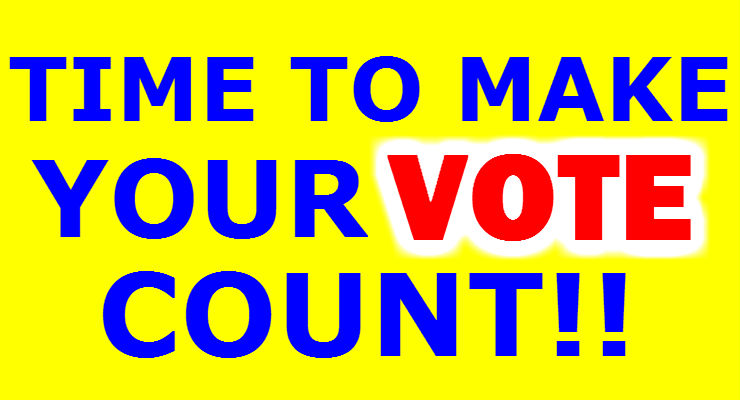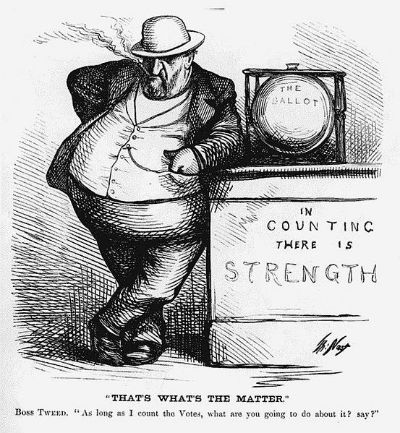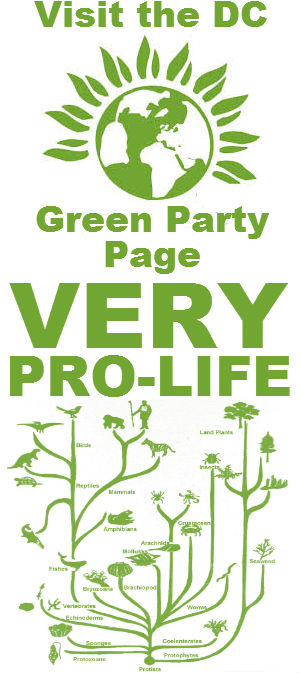
What can we do now?
Introduction
In my more recent voting-system articles, I’ve always emphasized that it doesn’t make any difference what the voting-system is, unless the vote-count result is verifiable. That admittedly isn’t as interesting as the voting-system, but it’s more important, more fundamental. So, I’ve been consistently pointing out that the project #1 must consist of demanding verifiable vote-counting. Demand it publicly, in every way. Make that demand known to foreign news outlets, so that everyone everywhere will know that we want democracy.
But voting is only half of democracy (even if the obvious direct half). Equally important is open and honest media (something that we currently don’t have any semblance of). In particular, it’s necessary that the public aren’t being fed a lie about what other voters want or which politicians belong to viable political parties.
In particular, it’s necessary that the public aren’t being fed a lie about what other voters want, and about what parties are viable. And, in particular, a complete mass-media blackout on certain positions, proposals, parties and candidates is another reason why we have no democracy (the other reason being the unverifiability of the vote-count results). So let me make suggestions about what to do, regarding those two problems.
1. Verifiable Vote-Count Results
First I’ll discuss what, in particular, count-procedure we’d be demanding, and then I’ll discuss the demand itself.
How it it could be implemented (if it were granted to us):
I’ve described this procedure in previous articles here, but it’s worth describing again here, to tell what it is, in particular, in detail, that we’d be demanding, if we demand verifiable vote-count results:
a. Public imaging of ballots:
Voting is by paper or cardboard ballot, marked by the MarkSense pencil method, or by punched holes; or by machine-balloting—voting machines. If voting-machines are used, such as a touchscreen, the voting-machine must output a paper ballot, showing the preferences (maybe in the form of a numbered ranking, etc.) that the voter wants to indicate. The voter examines the output ballot, to ensure that it’s as s/he wants it to be, and then drops it in the slot of a conventional ballot-box. Either way, with or without machine-balloting, the voter deposits a paper or cardboard ballot in the slot of a conventional ballot-box.

All aspects of the election, the voting, the count, and the guarding and storage of the ballots are observed and guarded by representatives of an inclusive set of political parties, all across the political spectrum. I’ll refer to those parties as “the observer parties”, and to their representative members as “the observers”.
The public ballot imaging takes place in front of a public gathering, and in front of the observers. One at a time, each ballot is laid face-up on a table. Over the table is a frame on which are mounted digital cameras belonging to and operated by each of the observer parties. When each ballot is laid on the table face-up, it is first ink-stamped with a sequential order-number mark, and then it is imaged by all of the observer-parties’ cameras, and an additional camera belonging to and operated by the elections department.
Each observer party has full control and charge of its digital camera, before, during and after the public ballot-imaging. After the public ballot imaging, the ballots are taken (in the presence of the observers) to a secure place of storage—a reinforced concrete windowless room or building, protected by locks, cameras, and alarms belonging to and operated by each of the observer parties.
Each observer party can scan its digital ballot-images to do a computerized count of the election. Note that that’s true, and easy, regardless of whether the election is by Plurality, Approval, or by any kind of rank-balloting voting-system (such as Instant Runoff (IRV), MAM, Benham’s method, or Woodall’s method).
Anyone can request, and must receive a copy of any party’s digital ballot-set, either in the form of the images, or the description of the ballot-information gotten by scanning the ballots, or both. Likewise, that information can be requested from, and the request must be granted, a copy of the election-department’s digital ballot-set. So anyone can do the count, using a computer, and any of the digital ballot-sets of the observer parties and/or the elections department. In the event that there be a disagreement about one or more ballots, the dispute is easily settled by retrieving and publicly imaging, again, the ballots. In front of the public and the observers, the disputed ballots (they’re all sequentially-numbered) are re-imaged publicly, as described above.
Any attempt at falsification of the ballot-set, or any part of it, would be regarded as a particularly serious felony of the first order, and the convicted perpetrator(s) would receive a life-sentence, without possibility of parole, in a maximum-security prison or a “supermax” prison, under conditions identical to those of the other most serious felons—no white-collar privileges or special-treatment.
Thus, completely secure and verifiable balloting (machine or otherwise) and vote-counting is easily achievable. And, because it’s easily-achievable, there’s no excuse to not have it.
What can we do now?
b. Demanding Democracy: Demanding democracy should be obvious but this demand should still be explicitly expressed everywhere it is possible.
Pressure Media: The oligarchy-owned, corporate-managed mass-media won’t publish those demands, at least not until they’re so well known that they can’t be ignored (even then, don’t count on anything). That includes the pseudoprogressive NPR. So, local completely independent progressive radio-stations, newspapers, newsletters, and community-access TV stations should be tried.
Pro-Democracy Demonstrations: When a whole wide range of proposals are excluded from the mass-media, then (peaceful, legal and lawfully-conducted) street demonstrations, pro-democracy demonstrations, can be the only way of publicly expressing a demand. Such demonstrations could, for example, take place in front of local departments of elections or the offices or local legislatures where relevant decisions are made.
Video and photographs of the pro-democracy demonstrations should be sent, by the progressive organizations that organize the demonstrations, to foreign media outlets. Foreign tourists should always be invited to the demonstrations, to photograph and video-record these pro-democracy demonstrations, to take the video-records home and give them to their country’s mass media outlets—to let the world know that we want democracy. And likewise, those foreign media outlets should be invited, well in advance, to have reporters at these pro-democracy demonstrations. As I said, this would let everyone know that we want democracy.
Note that, without verifiable vote-counting, the count is illegitimate. Therefore the elections are illegitimate. We have zero democracy. In addition to the pro-democracy demonstrations at particular significant locations, of course there could and should be marches (always with the proper permits, and conducted lawfully). In fact, ideally every pro-democracy demonstration would be preceded by a pro-democracy march to the location of the demonstration.
Sorry but those are the only ways that we could ever achieve democracy. And we certainly don’t have any now.
2. Demanding Honest and Open Media
Where to start with that demand?
Demonstrations and marches, just as described above.
Where to demonstrate?
In front of NPR radio-stations.
There are several good reasons for this approach. The work must be done locally, and those stations are the local places to start. They receive some community-funding, which makes them vulnerable to public opinion. They’re a visible recipient of the demonstrations, and a visible destination for the marches.
 And, additionally, they have a pseudoprogressive pretense. They’re often associated with colleges and universities, and they try to cozy up to the progressives in their local community. Their professed assumption, and that of NPR itself, is that they, and NPR, speak for the progressives.
And, additionally, they have a pseudoprogressive pretense. They’re often associated with colleges and universities, and they try to cozy up to the progressives in their local community. Their professed assumption, and that of NPR itself, is that they, and NPR, speak for the progressives.
So, let’s loudly tell them that they don’t – and tell everyone else too. Local FM stations, including NPR stations, solicit contributions from local progressives, in the form of “subscriptions”. So how about demonstrations in front of those NPR stations, with a big banner, visible to passing cars, the public, foreign media, etc., saying, “No, [station name here], we won’t subscribe to censorship.” or “Dump NPR. Allow Public Expression”. The banners would spread the message to the passersby, the media and to the stations themselves.
If anyone denies that there’s censorship, then ask them why no political party other than the Republocrats (Democrats and Republicans) is ever mentioned on NPR. Ask them why no position or proposals other than those of the Republocrats are ever aired or even mentioned on NPR. Ask them why no representative or supporter of any party other than the Republocrats is ever interviewed or allowed to speak on NPR.
For example, have you ever heard of the Greens on NPR? The Greens, in their platform, bend embarrassingly far over backward to kiss the fanny of NPR, when their platform praises NPR’s public-affairs coverage, and calls it “excellent” or something like that. But what has it gotten them in return? Nothing. NPR won’t ever mention the Greens. For NPR, the Greens don’t exist.
Of course they’ll answer that it’s because no one is interested—only the Republocrats have any support. Then answer, “And so it’s for you to decide for us what we want, what we’re interested in, and what we support?” Point out that it’s for us, the public, to decide what we want covered. And no, I don’t suggest asking NPR to improve. That would be quite hopeless. Instead, we should ask the local “progressive” FM stations to dump NPR, and replace it with local programming, with coverage and open inclusion of actual public opinion.
Of course the above-mentioned demands could and should also be expressed in the following media:
- Any genuine public-access radio, TV or print-media
- Social media such as twitter & Facebook
- Internet forums and newsgroups
- Call-in radio shows
- Letters to the editor
- Any public discussion or forums that present the opportunity
- Anywhere where govt-related problems are brought up
Adrian Tawfik says
Great work Michael! Do you think the many state referendums also being voted on tomorrow suffer the same vote counting problems?
Michael Ossipoff says
Well, when someone owns something, there’s a natural inclination to use it in one’s own best interest. That applies to voting machines just like anything else.
I can’t prove that count-fraud is happening regularly and routinely, but it can’t be proven that it isn’t. That makes the elections illegitimate.
Any election is subject to count-fraud, and that includes initiatives too. If, somehow, it were actually possible for someone to get an initiative on a state ballot, for a better electoral system, that initiative would be strongly contrary to the interest of our rulers. Therefore, I wouldn’t bet on its chances.
Though routine count-fraud isn’t proven, no one really has any idea how many votes the non-Republocrat parties (3rd-parties) really get. I know there isn’t much point in speculating about it, but if we demanded and got verifiable vote-counting, then we’d all accept the election results.
But we might ask ourselves if there are really so few people who want humane policies, fair to ordinary (non-rich) people, administered by honest, non-bought officeholders. The tv would have us believe that we’re all satisfied with the Democrat and Republican politicians, and their policies. Are we really?
Michael Ossipoff